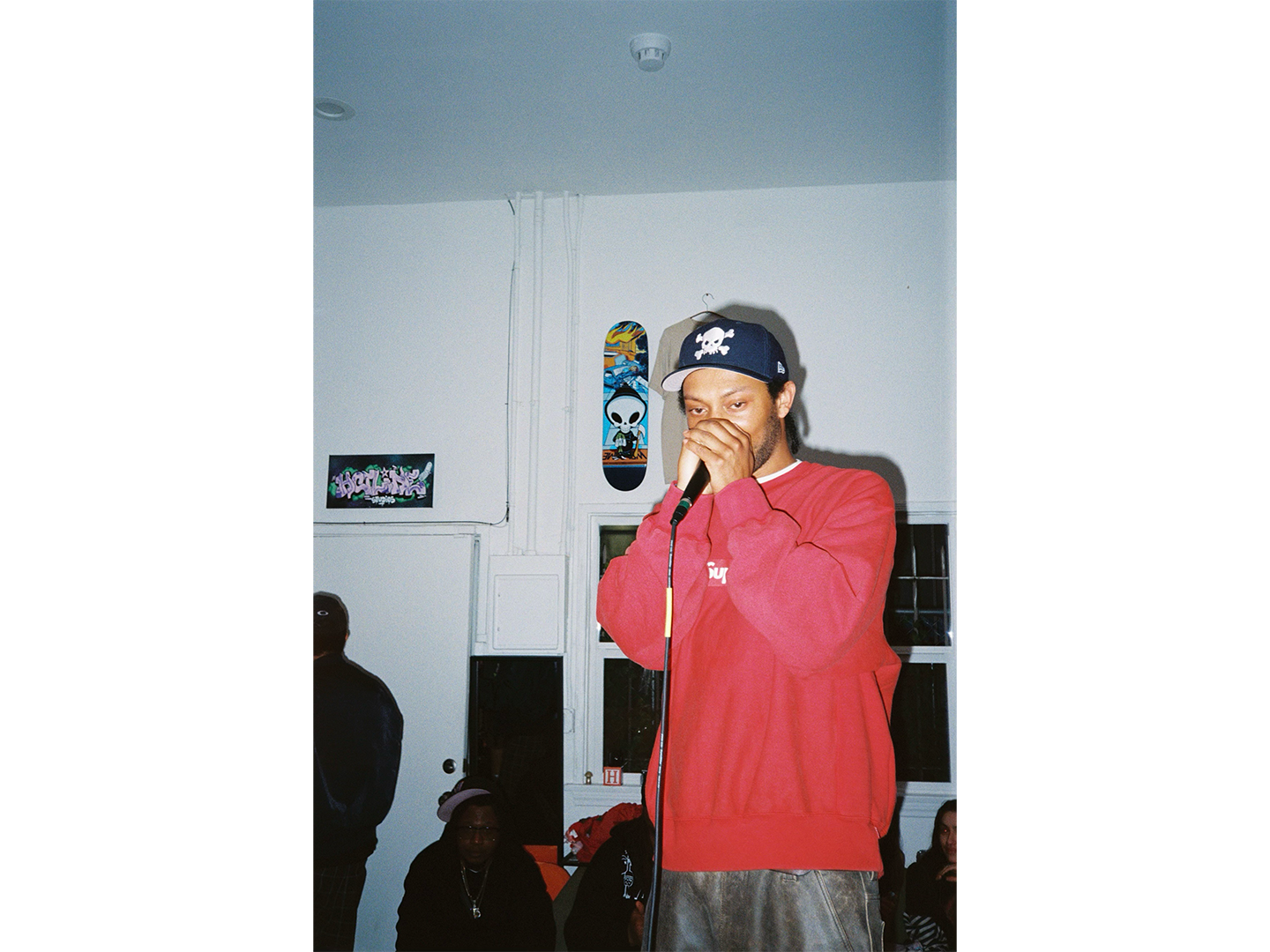Cletus Strap’s Quiet, Independent Climb Through LA’s Underground
By Matthew Becerra
On a warm afternoon in the middle of LA’s summer protests, Cletus Strap pulled up to a park with his skateboard and no plans beyond clearing his head. People were gathering to talk, to breathe, to just be together. Somewhere between the noise and the heat, a few of them started a game of SKATE. One of those players happened to be his favorite rapper, though, at the time, Strap didn’t think much of it. Months later, that random meet-up would turn into a creative partnership neither of them saw coming.
Strap was raised in the same Inglewood home his mom grew up in, his family’s taste set the foundation. His house always had a variety of music playing, his mom loved R&B and his uncles put him on Too $hort and E-40.
“I had a good musical basis,” he said. “Then my mom also put me on The Beatles, The Rolling Stones, all that classic rock shit. I was really hyped on rock before rap.”
That blend of worlds shaped him into more than just a rapper. He’s a musician through and through, someone who can move from church drums to raping without breaking stride.
“Everything I’ve ever heard has had an impact on me,” he said.
Strap started making music in middle school with his close friend. They were experimenting with Mixcraft and a GarageBand mic.
“We were just fucking around,” he said. “Trying to make beats and rap on them.” Eventually, he and his friends found inspiration in Odd Future. “When they came out, it was like, they were doing the type of shit we do,” he said.
Years later, that inspiration would come full circle.
It started during the George Floyd protests, when Strap went to a community meetup with his board.
“Everybody was there to talk and connect,” he said. “And Earl [Sweatshirt] just happened to be there with some homies.” They started a game of SKATE, chopped it up, and went separate ways, no talk about music.
“I didn’t even tell him I fucked with his music,” Strap said. “I didn’t want to be that rapper-opportunist dude.”
Then one day, Sweatshirt hit him up after hearing “St. Cletus”. “He told me, ‘This is my favorite project of the year,’” Strap said. “Bro didn’t even know he’s my favorite rapper.” The two started hanging out, recording, and eventually working together, now working on Strap’s next project which will be executive produced by Sweatshirt himself.
“It’s crazy. It feels like a long-lost brother type of thing,” he said.
Outside of music, skateboarding has always been part of Strap’s DNA.
“My cousins were always wearing Vans and Independent shirts, getting clothes from the skate shop,” he said. “I just never let go of that shit.” He grew up skating parks like Westchester, Venice, soaking in the intersection of music, art, and community that defined LA culture. “From the graphics to the magazines to the clothing — it was all connected,” he said.
That sense of connection bleeds into how he makes music. His process is entirely in-the-moment. “If you send me a beat, I’m probably not listening to it,” he laughed. “I gotta be in the studio, feeling it. When the beat knocks, I just load it up, turn on the mic, and let whatever comes out… come out.”
Working with producers like Mad Max, Kazi, and Rockitneedspace, Strap has built a catalog defined by consistency and creativity. “St. Cletus” and "What Might Happen” showed his range, but the “Kawhi EP” — recorded prior to a trip to Japan gives insight to his process, creating a snapshot of what life was like for him at that time.
“We met hella people out there, mostly women,” he said, laughing. “So that Kawhi vibe was just on. We had to shoot videos while we were out there.”
Everything about Strap’s career has been self-made. He designs and prints his own merch, presses his own vinyl, and funds every release himself.
“Sometimes I print it myself at home,” he said. “I just knew I wanted to do it so bad. The vinyls costed me, but it was worth it.” He looks up to friends like Sideshow, and Maxo, independent artists who built loyal fanbases off authenticity.
“It’s crazy that people sign off their merch to labels,” he said. “There’s a good margin if you can get it off. I was just trying to break even, and I was cool with that.”
That independence extends beyond music. Growing up in LA’s creative scene, Strap saw brands like FTP and HypeLand rise from high school ideas to global recognition. “It’s inspiring,” he said. “I probably would’ve done clothing or skated if it wasn’t rap. Either way, it was always gonna be art.”
Now, with a tour on the way, including a stop in Amsterdam for his birthday, Strap is watching everything come full circle.
“Up until I went to Japan, I’d never been out of the country,” he said. “It took me 28 years to go somewhere. People don’t leave, but I tell everyone now, save up and go experience something.”
And after years of grinding, Strap’s outlook is simple. “I like putting shit out into the ether for people to enjoy,” he said. “You never know — that shit might inspire someone else.”
